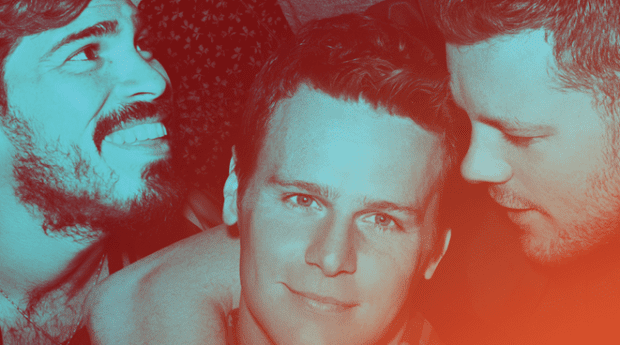I can’t say I’m surprised; today it was announced that HBO will not renew Looking, Andrew Haigh and Michael Lannan’s drama series about urban gays in San Francisco. It looks like the show’s star Jonathan Groff was the first to know (likely due to his agent pressuring them for an answer, since he’s the show’s busiest thespian — he’s the voice for the dashing hunk from Frozen) and he passed the news onto the key creatives behind the show. While the internet mourns or celebrates the loss of the gayest show on television since Queer as Folk, let’s take a look at exactly what Looking was.
The show’s first and second seasons were received well enough by critics who found the show a refreshing and gritty take on modern gay life.
The New York Times shockingly considered Looking to be the best of the Sunday night hipster block on HBO that includes Girls and Togetherness. The BBC’s Keith Uhlich even wrote that Looking “is one of the most revolutionary depictions of gay life ever on TV — and that’s because it makes it totally ordinary.” But therein lies the problem — ordinary isn’t compelling. The show often lacked pronounced and sustained conflict. The sexual aspect of the show was always muted but present enough to appear edgy. The friendships between the characters were always assumed rather than demonstrated and if you were to summarize the plot of the entire 18-episode run it would only take about two minutes.
When it came to the show’s Season 2 finale, New York Times’ Mike Hale probably put it best when discussing the possibility of show being renewed: “Sunday’s episode demonstrated why that might not be a slam-dunk decision. The show’s virtues are considerable, but there are times when they seem to come hand-in-hand with its defects — when intelligent romance and rueful humor shade over into slightly tedious melodrama.”
Although the show was generally undercooked, there were some highlights. Dom and Doris’s aged bar star and flatlining fag hag narrative proved to be the anti-Will and Grace and often was the only compelling thing going on the show. It’s mostly thanks to actors Murray Bartlett and Lauren Weedman, who maintained an earnest watchability in all of their scenes. The real breakout of the show was Richie, played by the endlessly handsome Raul Castillo, who was criminally underused. Every episode where he was the focus rang with a level of authenticity the show could never regularly achieve. His charm, strength as an actor and grounded nature made him an audience favourite, despite being put on the back burner for Season 2.
But mostly the show will be remembered for it lacklustre execution. Agustin and Patrick were likely the two most self-centred and annoying gay characters to ever hit television screens. While Agustin does make some kind of journey over the seasons to be a slightly less narcissistic sociopath, Patrick continues to be an awkward, navel-gazing, ball of yawn-inducing contradictions and conflicting ideologies right to the quiet end.
While seeing things like famous gay dive bars and radical fairy forest dance parties was somewhat thrilling, especially on a juggernaut like HBO, it always seemed a bit on the nose. The show loved bringing up big issues like PrEP use, monogamy, public sex and inter-generational relationships, but always bit off more than it could chew and never really started any insightful dialogue.
With the show’s cancellation also came the announcement that HBO would be making a movie to tie up the series and give it a proper ending. The more I think of Sunday’s finale, the more I think this is a bad idea. While I didn’t love the finale, I feel the questions it leaves to the imagination are better off left that way. Do I need to know if Dom’s chicken shack is a success, or is it important enough to know he’s finally doing something on his own? Agustin and his new boyfriend seem functional and supportive, and Agustin is giving back for once in his life. What is left to know there? Doris is happily coupled and finally aware of the necessary boundaries required between herself and Dom. If the big question left is whether Patrick chooses Kevin or Richie, then that’s not enough for a Looking movie. The show ends with the vague notion Patrick might one day make the right decision for himself (for once), and not have it be based on what other people think about him . . . and to be honest, that’s enough. To watch it play out in a Team Richie vs Team Kevin way would be pointless and tedious. But then again, it’s what we’ve come to expect from Looking.
Check out Matt’s reviews of Season 2

 Why you can trust Xtra
Why you can trust Xtra


